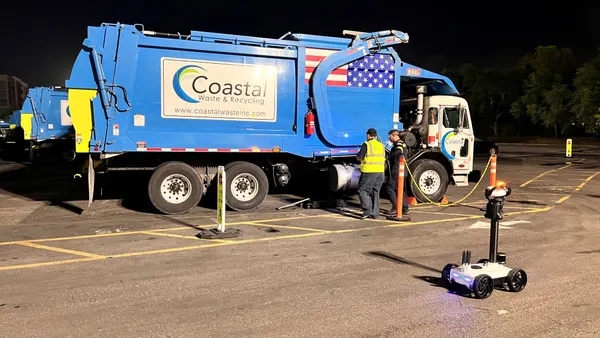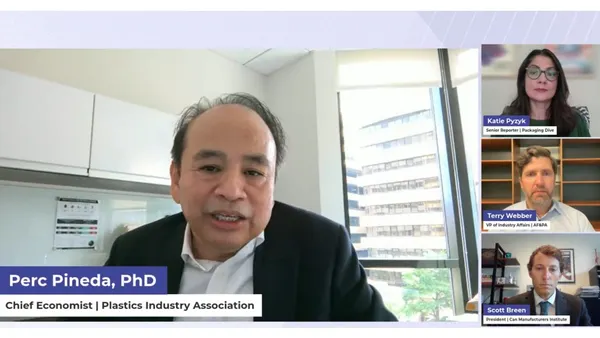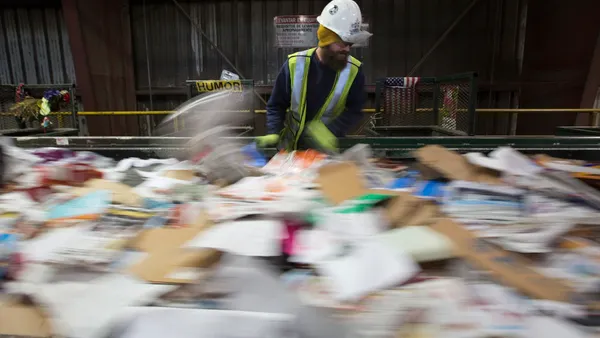Dive Brief:
- The New York State Department of Environmental Conservation (DEC) finalized revisions to the state's solid waste management regulations this month, marking the first major overhaul of the program in two decades, as reported by Waste Today Magazine.
- The regulations, often referred to as Part 360, will enhance regulatory controls on wastes from oil and gas production; improve C&D debris and fill material management; improve management of compost and mulch; and enhance support for recycling, among other changes.
- The finalized revisions are the result of two public comment periods, five public hearings and 25 workshops with stakeholders, all ensuring that New York "remains a leader in protecting our communities and natural resources through enhanced recycling and waste management," according to DEC Commissioner Basil Seggos. The regulations will go into effect on Nov. 4.
Dive Insight:
In an interview with Waste Dive, National Waste & Recycling Association (NWRA) Northeast Regional Manager Steve Changaris explained that a pre-proposal draft of these rules was initially introduced more than a decade ago, during which NWRA and other stakeholders submitted "voluminous" comments — causing the Department to largely reassess the original draft. When the proposal was finally released in February 2016, multiple organizations went into overdrive to work with the Department on what is now the finalized list of revisions.
"There were so many things in there about new registration requirements, testing for fill ... there were grandfathering provisions, transitioning provisions, and what we did was pretty much point out that it’s not going to work. You're not going to be able to do a retrofit on an existing building in the timeline they gave ... So the Department said, 'OK, we hear you, we’ll issue a revised rule," said Changaris.
Changaris believes that, while implementing many of these new regulations could be challenging, the Department is likely to be flexible and work with industry operators to ensure changes go into place as efficiently as possible. Due to how significant these changes will be for the entire solid waste industry across New York, it is also likely that there could be some mandatory revisions in the rulemaking process in the near future as implementation begins.
"It’s a huge undertaking to get this done. A lot of time and energy," said Changaris. "It’s a long time coming. It’s like the train coming out of the tunnel. It’s here, we sort of had to hurry up and wait for the first 10 years and the two years it was really fast and furious. But they pushed it out, they got it done, and we’re going to live under those regulations for a good, long time to come."











